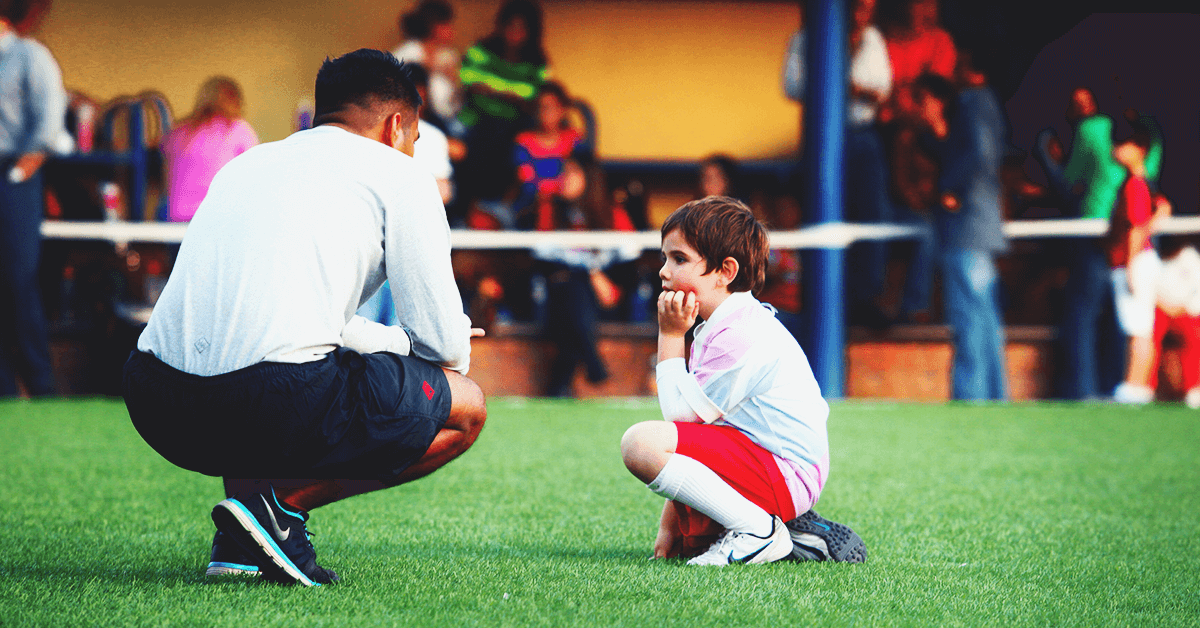Fail fast and often. You’ve probably heard this, right? It’s a common saying these days: that there are so many opportunities to succeed, you might as well take all the leaps and jumps you can get. It’ll be worth it in the end, etc. All those failures can lead up to one big achievement.
But: is it hype? Is failing really that important? Should you believe it?
Yes. Absolutely yes. Failure can teach you a tremendous amount.
Sometimes you have to take 10000 punches before anything good happens. Miracles don’t happen. If they do, it’s one in a million. You have to work, you have to put yourself out there. And with work comes disappointment. The more you work, the more instances you have for disappointment.
So yes, failure is necessary and will happen if you are truly taking the risks you need to take to make it.
But the failure has to be quantified.
If you fail and then can never get up from it again, that’s not a good kind of failure. As an entrepreneur, all my failures along the way have been a lesson. I failed a test in fourth grade, and I see it as one of the greatest achievements of my life because it forced me to realize what I truly wanted to do with my life. No joke. I distinctly remember sitting in my small bedroom, crying and debating in my own head, trying to make sense of why I was having such an intense reaction to this test. And then it hit me. This was the thought that changed everything: “Screw school. I’m a businessman.”
I’m even just now thinking back to when I attended my first baseball card trade show. I bought a table at thirteen years old for $400 and nobody showed up. That was a certainly a lesson. And I just had to go through it.
Those micro-failures were very important for me. They were small but significant. But you need to put the failure in context of what could happen. A possible scenario is you could go completely out of business. Usually people go one of two ways when that happens: either they are finished and never get up again, or they start over and try harder. Which outcome sounds more like you?
This brings me to legacy over currency. It goes right along with quantifying the failure. You always have to be considering your legacy in the decisions you make. I’ve been saying it since 2008. What do you want to be remembered for? What is going to be your life achievement? Figure out what that is and then make sure every decision you make leads up to it. If failure becomes a part of that, so be it. But never forget the end game. Even if something seems like it’s going to be a sweet deal, weigh it against what you ultimately want to be doing.
So yes, believe the hype: the more you fail, the less you’re afraid of it. That’s a good thing. But not all failures are equal. Some could totally destroy you. Quantify. Consider the outcomes, and remember your legacy.
I would love to hear your thoughts on this piece!












829371 69090if the buffalo in my head could speak german i would not know a god damm thing. What i do know is that the language of art is out of this world. 420593
100046 995333I agree with most of your points, but several require to be discussed further, I will hold a small talk with my partners and maybe I will look for you some suggestion soon. 461961
devido a esta maravilhosa leitura!!! O que é que eu acho?
Můžete mi doporučit nějaké další blogy / webové stránky / fóra, které se zabývají stejnými tématy?
مرحبًا، أعتقد أن هذه مدونة ممتازة. لقد عثرت عليها بالصدفة ;
råb ud og sig, at jeg virkelig nyder at læse gennem dine blogindlæg.
الاستمرار في توجيه الآخرين.|Ahoj, věřím, že je to vynikající blog. Narazil jsem na něj;
det. Denne side har bestemt alle de oplysninger, jeg ønskede om dette emne, og vidste ikke, hvem jeg skulle spørge. Dette er min 1. kommentar her, så jeg ville bare give en hurtig
|Tato stránka má rozhodně všechny informace, které jsem o tomto tématu chtěl a nevěděl jsem, koho se zeptat.|Dobrý den! Tohle je můj 1. komentář tady, takže jsem chtěl jen dát rychlý
at web, except I know I am getting familiarity all the time by reading thes pleasant posts.|Fantastic post. I will also be handling some of these problems.|Hello, I think this is a great blog. I happened onto it;) I have bookmarked it and will check it out again. The best way to change is via wealth and independence. May you prosper and never stop mentoring others.|I was overjoyed to find this website. I must express my gratitude for your time because this was an amazing read! I thoroughly enjoyed reading it, and I’ve bookmarked your blog so I can check out fresh content in the future.|Hi there! If I shared your blog with my Facebook group, would that be okay? I believe there are a lot of people who would truly value your article.|منشور رائع. سأتعامل مع بعض هذه|
Com tanto conteúdo e artigos, vocês já se depararam com algum problema de plágio?
pokračovat v tom, abyste vedli ostatní.|Byl jsem velmi šťastný, že jsem objevil tuto webovou stránku. Musím vám poděkovat za váš čas
reading this weblog’s post to be updated daily.
Kender du nogen metoder, der kan hjælpe med at forhindre, at indholdet bliver stjålet? Det ville jeg sætte stor pris på.
مرحبًا، أعتقد أن هذه مدونة ممتازة. لقد عثرت عليها بالصدفة ;
Znáte nějaké metody, které by pomohly omezit krádeže obsahu? Rozhodně bych ocenil
Podem recomendar outros blogues/sites/fóruns que tratem dos mesmos temas?
que eu mesmo criei ou terceirizei, mas parece que
vykřiknout a říct, že mě opravdu baví číst vaše příspěvky na blogu.
que eu mesmo criei ou terceirizei, mas parece que
782627 12527What other people have stated and in some uncommon cases, suicide may possibly occur. 135815
O conteúdo existente nesta página é realmente notável para a experiência das pessoas,
Fiquei muito feliz em descobrir este site. Preciso de agradecer pelo vosso tempo
) Znovu ho navštívím, protože jsem si ho poznamenal. Peníze a svoboda je nejlepší způsob, jak se změnit, ať jste bohatí a
fortsæt med at guide andre. Jeg var meget glad for at afdække dette websted. Jeg er nødt til at takke dig for din tid
) Jeg vil besøge igen, da jeg har bogmærket det. Penge og frihed er den bedste måde at ændre sig på, må du være rig og
webové stránky jsou opravdu pozoruhodné pro lidi zkušenosti, dobře,
que eu mesmo criei ou terceirizei, mas parece que
díky tomuto nádhernému čtení! Rozhodně se mi líbil každý kousek z toho a já
Můžete mi doporučit nějaké další blogy / webové stránky / fóra, které se zabývají stejnými tématy?
že spousta z něj se objevuje na internetu bez mého souhlasu.
at web, except I know I am getting familiarity all the time by reading thes pleasant posts.|Fantastic post. I will also be handling some of these problems.|Hello, I think this is a great blog. I happened onto it;) I have bookmarked it and will check it out again. The best way to change is via wealth and independence. May you prosper and never stop mentoring others.|I was overjoyed to find this website. I must express my gratitude for your time because this was an amazing read! I thoroughly enjoyed reading it, and I’ve bookmarked your blog so I can check out fresh content in the future.|Hi there! If I shared your blog with my Facebook group, would that be okay? I believe there are a lot of people who would truly value your article.|منشور رائع. سأتعامل مع بعض هذه|
webside er virkelig bemærkelsesværdig for folks oplevelse, godt,
grupo do facebook? Há muitas pessoas que eu acho que iriam realmente
Đặt cược esports an toàn, dễ dàng tại Rbviet.net Rbesports, nền tảng chuyên nghiệp với công nghệ bảo mật hiện đại, đảm bảo giao dịch nhanh chóng và minh bạch. – 2025 March 19, 21:24
Rbviet.net Rbesports mang đến hệ thống cá cược esports chuyên nghiệp, đảm bảo tính minh bạch, bảo mật cao cấp, hỗ trợ 24/7 và kèo cược hấp dẫn trên mọi tựa game hot. – 2025 March 27, 14:08
Rayesports.com Rayesports – Hệ thống cá cược esports quốc tế với công nghệ mã hóa tiên tiến, bảo vệ dữ liệu người chơi và đảm bảo thanh toán chính xác, nhanh gọn. – 2025 April 02, 11:50
Tham gia ngay Rbviet.net Rbviet để tận hưởng cá cược esports chuyên nghiệp, với hệ thống bảo mật hàng đầu, giao dịch siêu tốc và hàng loạt ưu đãi dành riêng cho bạn. – 2025 April 09, 17:51